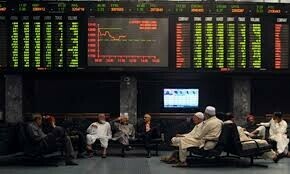LONDON: The British government’s hostile attitude towards business is damaging the economy and companies will move overseas if they continue to be unfairly attacked for warning about the dangers from Brexit, the City of London’s policy chief told Reuters.
The government’s already strained relations with business further soured over the weekend after a senior minister accused companies of issuing “completely inappropriate” threats to pull out of the country over Brexit.
A day earlier the foreign minister Boris Johnson was quoted by the Daily Telegraph newspaper dismissing business leaders’ concerns about the impact of Brexit and using foul language in a meeting with European Union diplomats.
Catherine McGuinness, the political leader of the City of London, the local government that administers Europe’s biggest financial centre, said the government’s relationship with business is the worst since she started working in 1983.
She said the relations between business and politicians are even worse than when taxpayers were forced to spend more than 133 billion pounds ($176.65bn) bailing out British banks at the height of the 2007-2009 global financial crisis.
“Some of the statements we’ve heard don’t encourage you to think that we are an economy that welcomes business,” McGuinness told Reuters in a restaurant near the Bank of England.
“Business is very frustrated that we are not making progress. Secondly there is a huge amount of uncertainty around, and thirdly, whenever they try to say anything, which they do with care, they are slapped down.”
The souring in relations comes at a critical moment in the Brexit process where many large companies are deciding what operations they may have to move to the continent to ensure they can continue trading with the EU.
A series of companies with major operations in Britain, including Airbus, Siemens and BMW, have voiced concerns about the impact of Britain’s departure from EU, saying a withdrawal without a deal would force them to reconsider their investments.
With only nine months left until Britain is due to leave the EU, little is yet clear about how trade will flow between the world’s fifth largest economy and its biggest trading bloc.
The business minister Greg Clark on Monday attempted to distance himself from some of his colleagues by saying any company and industry that brings jobs to Britain is entitled to be listened to.
McGuinness said she was concerned that time is running out to secure an agreement and the probability that Britain exits the EU without having agreed a divorce deal is increasing.
“You do get the feeling that the sand is running out of the hour glass rather quickly,” she said. “I feel there has been a lot of kicking cans down the road and we are coming up against the wall.” McGuinness also said she was concerned that the government will end up agreeing a trade deal only for goods, without properly addressing services.
This would help solve the thorny issue of how to avoid a hard border on the island of Ireland that could rekindle sectarian violence in the region, but would leave financial and other services out in the cold even though they make up about 80 per cent of Britain’s economic activity.
“I am worried that there is a possibility that they will put other parts of the economy above the big engine that the financial and related professional services represents,” she said.
McGuinness, who has travelled to China and the United States in the last year and will visit India soon, said Brexit has undermined Britain’s reputation as a predictable place to do business, forcing the country to prove its value to businesses in a way that it didn’t need to do before.
“They have seen Britain as a gateway to Europe and the pinnacle of success I don’t think we look particularly stable anymore,” McGuinness said.
Published in Dawn, June 26th, 2018
















































Dear visitor, the comments section is undergoing an overhaul and will return soon.